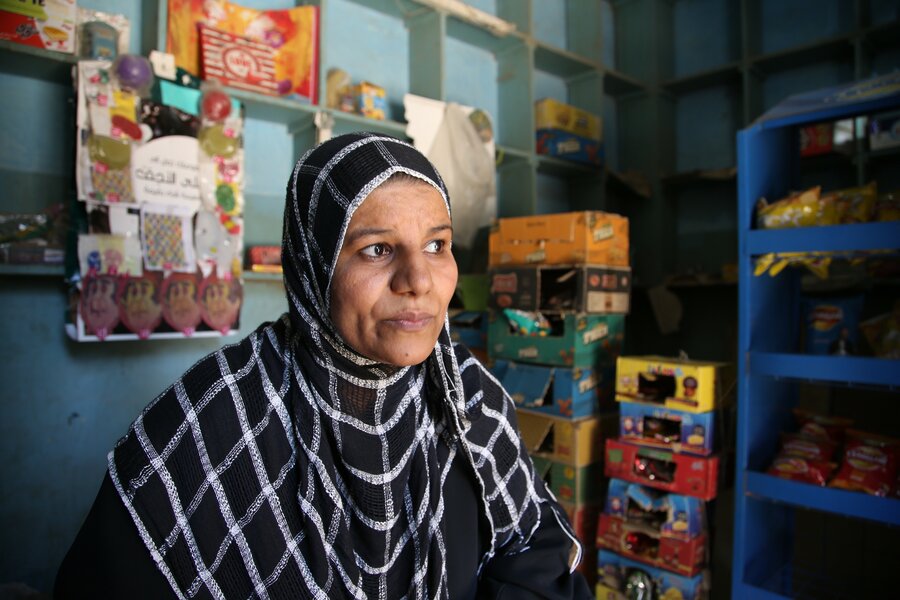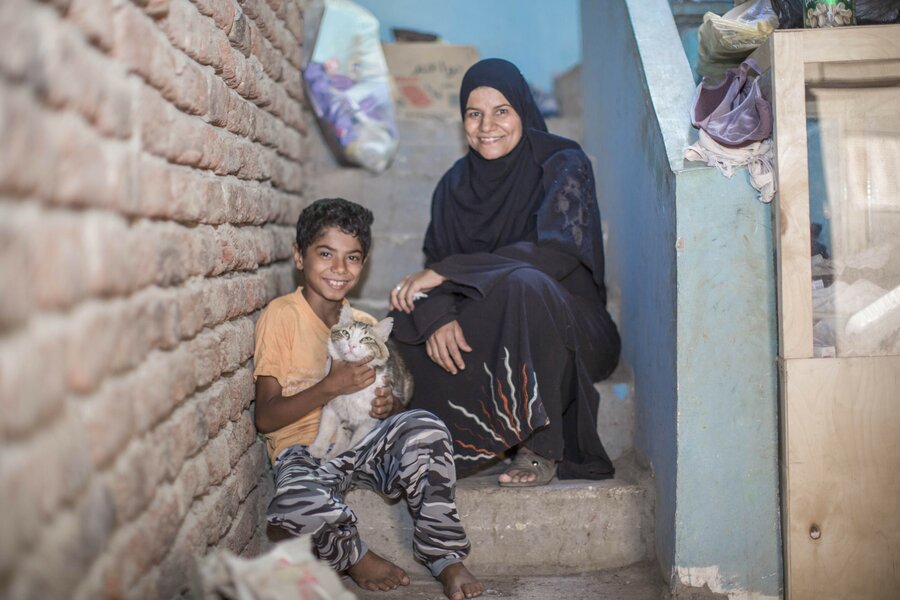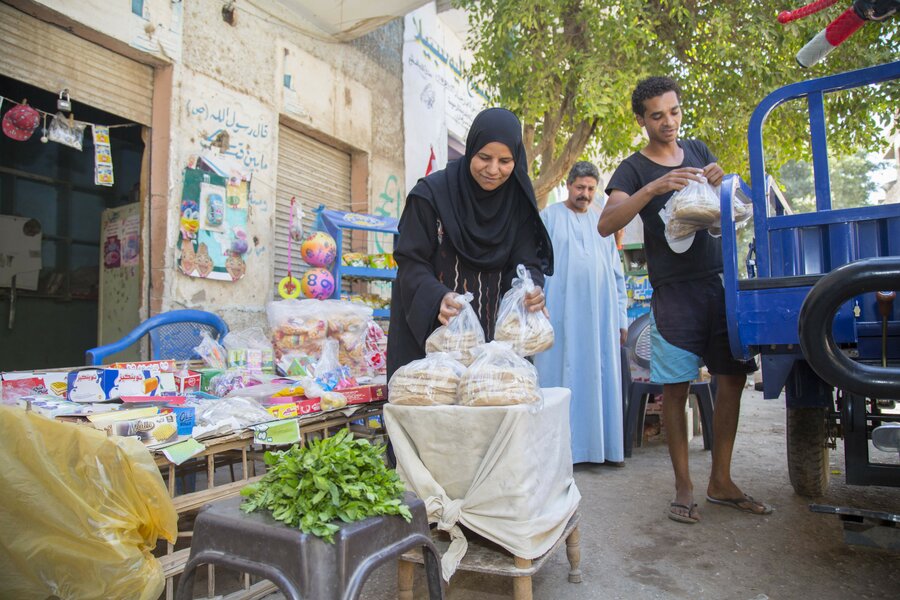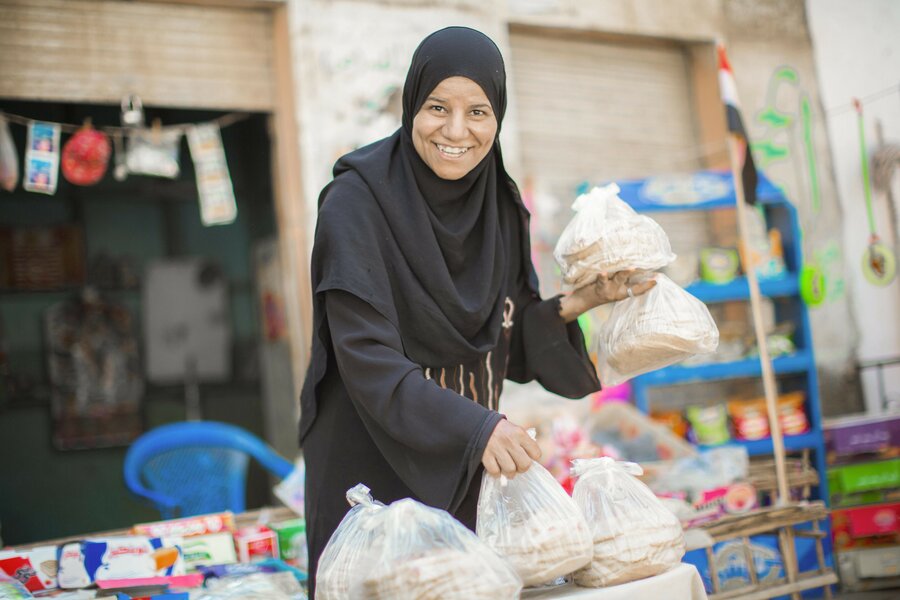‘How a microloan and training turned my struggling stall into a busy shop’

When Sayyida Qenawi started out her small business a few years back, she had no idea how to run it. The 40-year-old resident of Luxor, in Upper Egypt, hoped it would come to provide the money she and her husband needed to raise their three children.
Often called the biggest open museum in the world, Luxor, the capital of the governorate of the same name, is a city rich in historical and archaeological heritage. Sayyida and her family, however, live in a harsher reality.
Despite flourishing tourism, the recession of the past few years has left more than 55 percent of the governorate's population in poverty. Like many others, Sayyida's family are unable live with any degree of comfort on a single income.
"My small venture was stagnant. It wasn't growing at all and I had no idea why."
"My husband and I had little money and as our children grew, so did our needs," she says. "We could barely afford the basics and lived mostly on debt. When my children needed clothes, my mother had to step in. That broke my heart. I asked myself, ‘Are they orphaned that my mother has to take care of them!'"
Sayyida gathered up some sweets and snacks, stacked a couple of straw boxes and began a makeshift stall in front of her house. She made some money selling to neighbours and their children and the odd passer-by.
Shaking things up a bit
In Luxor's conservative society, it's not always easy for a woman to go out for work. "My brothers opposed the idea at first," she says. "Is she going to sit by the road selling stuff!" she recalls them saying. "They wanted to give me a monthly stipend, but I refused. I decided to start up something better than waiting for someone else's money. I told them that money they would give me belongs to their families and children".
Her business, however, did not take off.

It wasn't until Sayyida's youngest son Abdallah joined a community school WFP happens to serve that her life took a turn. Key Of Life, WFP's implementing NGO partner, "called me up asking if I am interested to get some training and support for my business", she says. "I didn't know what this was about at first, but I said yes".
She adds: "My small venture was stagnant. It wasn't growing at all and I had no idea why."
"The training taught me to separate between the household wallet and the store wallet, no matter how little that was."
Sayyida says she felt she was doing something wrong but didn't know what.
"I had a box at home where I kept the money I made through the sales. I used this money sometimes for transportation, if the children needed something, if a seller passed by and I needed to buy anything … sometimes, I ended up having no money left to replenish my stock."
She attended a three-day training as part of WFP's assistance package for families in the poorest communities in Egypt's southern governorates. Parents of children who attend schools where WFP is implementing school feeding are offered monthly cash assistance, which both supports them and serves as an incentive. Mothers are offered the chance to get training and microloans to start a small business or grow an existing one.

Thanks to a European Union (EU) grant of €60 million (US$66m), WFP provided a comprehensive package of interventions to help combat the root causes of child labour through interventions that support enhanced nutrition, food security, and quality of education in 16 governorates across Egypt. The five-year project was completed in the summer benefitting 2.3 million people in total.
Business savvy
"The training taught me to separate between the household wallet and the store wallet, no matter how little that was. I also learnt about how important picking the right location was to grow my business and make more money."
WFP specifically targeted women through its Get Ahead for Women in Enterprise training in designing, implementing and managing income-generating activities. As many as 52,000 mothers of community school children received the training. 13,000 of them, including Sayyda, received microloans and are successfully running their own small ventures.

Today, Sayyida has a rented shop close to the highway and near two schools, a church, the post office and a community centre. "I have the best location and I am applying everything I learnt in the training. I now even sell fresh bread that I buy and pack here and it sells out before it arrives. All the neighbourhood and schoolchildren wait for me until I open in the morning. If I'm late or the shop is closed, they call me to ask when I will open," she says, beaming. "And when I need money, I never touch the store's cache!"
Now Sayyida can afford a lot more than she hoped for; she has no debts, and no one pays for her children Shaimaa, Mohamed and Abdallah's needs but herself.
"Now I can buy them new clothes in summer AND winter," she says.


